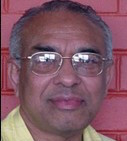By Ameer Ali
Before JR’s open economy (JR’s version of Anwar Sadat’s infitah or open door policy in Egypt) was ushered in, two issues preoccupied the attention of Muslim Ministers in the country: availability of dates for iftar, a solemn occasion for breaking the fast during Ramadhan, and availability of foreign exchange to travel to Mecca for the annual pilgrimage. Because these two issues consumed the country’s precious foreign reserves, governments of that time had to be economical. Rarely a Muslim Minister spoke or discussed in public about any other issue concerning the Muslim community in those days. Perhaps, Badiuddin Mahmud in Mrs. B’s cabinet was an exception, because he always talked about Muslim education and on one occasion in 1972 he called a special meeting at his residence to which he invited Muslim leaders and spoke to them about the need to change the community’s economic direction from business to other pursuits in the light of his government’s socialist agenda. However, with JR’s open economy dates and foreign exchange are not the issues for ministers to worry about. Post-JR infitah has taken care of them.
To the current generation of Muslim Ministers and politicians therefore there is absolutely no populist cause, whether social, economic or political to fight for and win the confidence of the community. The formation of the SLMC was a political stunt which achieved nothing and brought communal disaster. They should thank the militant Buddhist ultra-nationalists for the violence they have unleashed against Muslims because that at least has given these policy bankrupt leaders a photo opportunity in visiting those sites and then to declare over the media that they had taken up the matter with the President and the Prime Minster – end of the story.
Rising unemployment among educated Muslim youth, unbearable family indebtedness due to high cost of living, landlessness and homelessness, family violence, a misogynist marriage and divorce act, substandard education in Muslim schools, the communal and social impact of ultraconservative religious ideologies and so on, are issues that need concerted policies and coordinated strategies to tackle. None of these problems seem to have caught the attention of Muslim politicians. Has any of them taken up any of these issues and spoken in the parliament? Issues like cost of living, unemployment, landlessness and homelessness are common in other communities as well. By championing these causes and suggesting policy measures to tackle them won’t these leaders win the affection of other communities also? At least pne of these ministers seem to have appointed his own think-tank of retired diplomats, educationists and professionals. What has this think-tank done so far?
What is now happening in the Muslim quarter of local politics is to resort to the old game of betting on the winning horse. The iftar has become an organised ritual tamasha for sitting Muslim parliamentarians and aspiring parliamentarians to hobnob with government and opposition party leaders to prepare the ground for winning positions and favour when the opportunity arrives at the election. They are testing the waters. Muslims started this tamasha and other political leaders are continuing with it with additional fanfare. Actually iftar functions have become mini-festivals to end in the grand festival at the end of the fasting month of Ramadhan.
Time has come for the country to look for a third way instead of choosing between the existing two. The existing ones are corrupt, both are prisoners of IMF and foreign capital and both have no independent solution to the economic and ethnic issues facing the nation. There need to be another route to achieve individual freedom with social justice and equality of opportunity, all without sacrificing the sovereignty of the country. Being the third community in number Muslims should be in the forefront of looking for this third way. There are level headed Buddhists, Hindus and Christians with compassion and foresight to work with Muslims and everyone else in the country to build up that third way. This is the only long run solution to Sri Lanka’s malaise. At the moment iftar and infitahseem to the essence of Muslim politics and economy.





